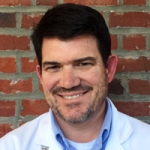Neonatal Pharmacology Lecture Pack
The “Neonatal Pharmacology” add-on package features presentations with a focus on the pharmacological aspects of caring for neonates. The rapid developmental changes of the neonate after birth, combined with a lack of research on the pharmacokinetics and pharmacodynamics of drugs in this vulnerable population, create a challenging situation for health care professionals. This special add-on package was created to bring together experts in the field to help you expand your knowledge and stay up to date with the latest research.


Bobby Bellflower is a Neonatal Nurse Practitioner with extensive experience in clinical practice, education, and administration. Her undergraduate nursing degree is from University of Memphis, and her masters and doctorate is from University of Tennessee Health Science Center (UTHSC). Currently, she is the Director of Doctor of Nursing Practice (DNP) Programs at UTHSC in Memphis, TN and does her clinical practice at Regional One Health, Level IIIc NICU. In the past, she served as director of the NNP program at UTHSC and, most recently (2010-2016), was the manager of the NNP Service at Le Bonheur Children’s Hospital in Memphis. Her research interests include prevention of NEC in neonates, evidence-based practice for APRNs and bedside nurses, and QIs.
Objective 1: Describe pathophysiology of NEC Objective 2: Identify treatment option Objective 3: Discuss possible prevention techniques
Although survival rates and morbidity of premature and ill newborns have improved over the past decades, Necrotizing Enterocolitis (NEC) remains a significant problem for premature babies. NEC is a disease process that continues to contribute to mortality and morbidly in the Neonatal Intensive Care Unit (NICU). Recent studies indicate there are ways to diminish the incidence of NEC and research is actively looking for ways to prevent NEC. The presentation will discuss presumed causes and pathophysiology of NEC, current treatment guidelines including drug treatment, and will look at ongoing research to prevent NEC.


Jim Thigpen has been a pediatric clinical pharmacist for 30 years and is currently an associate professor of pharmacy at East Tennessee State University Bill Gatton College of Pharmacy. When he began his training at MUSC in Charleston, SC, they were investigating Survanta and he has been witness to and a participant in the evolving world of neonatology since. He has spoken at several neonatal nursing conferences over the years and enjoys helping other practitioners learn about and apply pharmacotherapy in this special population.
Topic: Clinical Pain Management in the Neonate - [View Abstract]
Topic: Pharmacotherapy for Hemodynamic Instability in Neonates - [View Abstract]
Objective 1: a: Discuss the conditions that the neonate face and the associated infectious process Objective 2: Identify the common pathogens and why they continue to be encountered despite progress that has been made in identification and prophylaxis Objective 3: Discuss the classes of antibiotics that can be utilized in neonates, concerns about toxicities and administration issues Objective 4: Identify clinical conditions, other therapies and medications that influence antibiotic selection
When faced with a potential neonatal infection, it is critical to choose the correct antibiotic(s) for the situation. Considering the environment of antibiotic resistance and some of the limitations for antibiotic use in this fragile population, selecting the right drug, dose, interval and monitoring parameters can be life and death decisions. This presentation will help the learner understand the complexities of this problem and provide them with the tools to provide state-of-the-art medical care.


Amy Holmes has practiced as a pharmacist for 21 years with the last 9 years being focused in neonatal critical care at Novant Health Forsyth Medical Center in Winston Salem, NC. She holds degrees in pharmacy from University of North Carolina (BS) as well as the University of Maryland at Baltimore (PharmD). Amy serves as the Residency Program Director for the acute care PGY1 program at Novant Health Forsyth Medical Center. She is active in state and national pharmacy organizations including the Pediatric Pharmacy Advocacy Group (PPAG) and the American Society of Health-System Pharmacists (ASHP).
Topic: Updates in Pharmacotherapy for NAS - [View Abstract]
Objective 1: Describe the properties of medications that affect distribution into breast milk Objective 2: Evaluate the appropriateness of a medication in a breastfeeding mother Objective 3: Discuss medication options for stimulating breast milk production
Maternal milk offers many benefits to both mother and baby; however, breastfeeding is often stopped unnecessarily due to uncertainty or fear regarding potential safety issues with medication use in lactation. This presentation will provide information that will assist health care professionals in optimizing resources to make sound decisions regarding medication safety during lactation. There will be discussion on the pharmacologic properties associated with passage of medications into maternal milk including discussion of specific medication examples. We will discuss resources available that provide the most thorough and up to date information on medication use in lactation. Finally, we will discuss the use of galactogogues to augment breast milk production.


I have been working in the neonatal area for about 40 years. I received my BSN from Grand Valley State University in Grand Rapids, Michigan. I began working in the NICU right after graduation at Bronson Methodist Hospital in Kalamazoo, MI. I then moved to Detroit and worked at Henry Ford Hospital for 7 years as an RN, Perinatal Educator, Clinical Nurse Specialist, and NNP. I completed my MSN at Wayne State University. I was the first NNP in Michigan, and after leaving Henry Ford, I started working at St. Joseph’s Hospital in Ann Arbor. We moved to Arizona in 1985. I worked at St. Joseph’s Hospital & Medical Center in Phoenix and Banner Desert Medical Center in Mesa (including time at other Banner facilities at Baywood, Mesa Lutheran, and Thunderbird). I completed my PhD at the University of Arizona in Tucson in 2005, and moved to Omaha, NE to begin teaching in the NNP program at Creighton University. I have continued to work most weekends in the NICUs at Methodist Women’s Hospital, Creighton University Medical Center, Lakeside Hospital, and Bergan Mercy Medical Center (CHI Health). I love both teaching and the clinical aspects of the NNP role. I love working with students and helping them “get” the connection between physiology and the disease. I also get a “kick” out of attending deliveries, bagging infants, and intubating them!! I love that adrenaline rush! I also enjoy biking, reading a good novel, and enjoy roller blading (until I broke my leg 4 years ago). I have been pretty cautious with my roller skating since then. I have two sons – one in college and one who recently graduated from college and is working in downtown San Francisco. My husband and I love to travel (when I get time off) and have done some kayaking on the beautiful Nebraska lakes.
Objective 1: Identify microorganisms causing early and late-onset infections in the NICU. Objective 2: Summarize the major classes of antibiotics used in the NICU, including mechanism of action, spectrum of activity, side effects, and resistance patterns. Objective 3: Describe factors that should be considered when comparing empiric and directed antibiotic therapies for the neonate.
This talk will discuss the bacteria seen in the NICU and the groups of antibiotics that are used to treat them, differentiating between empiric therapy and directed therapy. The antibiotics covered will be penicillins, cephalosporins, aminoglycosides, macrolides, carbapenems and vancomycin. Antibiotic resistance patterms and possible new therapies will also be discussed.


Ying-Tang Ng is an Assistant Professor in the Department of Pharmacy Practice at Husson University School of Pharmacy in Bangor, Maine. She received her Doctor of Pharmacy degree from Wingate University School of Pharmacy in Wingate, NC. Post graduation, Dr. Ng completed her pharmacy practice residency at Wolfson Children’s Hospital in Jacksonville, FL and pediatric specialty residency at Texas Tech University School of Pharmacy in Amarillo, TX. Prior to joining Husson University, Dr. Ng practiced at New Hanover Regional Medical Center in Wilmington, NC as a clinical pharmacist and at Children’s Hospital of Michigan (CHM) in Detroit, MI as a clinical pharmacy specialist in the Neonatal Intensive Care Unit (NICU). At CHM, Dr. Ng also served as the Post-Graduate-Year (PGY-1) residency coordinator for 1st-year residents. Dr. Ng is a Board Certified Pediatric Pharmacotherapy Specialist. She is currently an active member of the American College of Clinical Pharmacy (ACCP) and the Pediatric Pharmacy Advocacy Group (PPAG).
Objective 1: Describe different pharmacokinetic changes of medications in a neonatal patient receiving ECMO. Objective 2: Choose appropriate anticoagulation therapy for a neonatal patient receiving ECMO. Objective 3: Compare and contrast different antimicrobial therapy approaches for a neonatal patient receiving ECMO. Objective 4: Create pharmacotherapy plan for neonatal patient receiving ECMO.
Extracorporeal Membrane Oxygenation (ECMO) provides support to neonates with cardiac and/or respiratory failure despite all other conventional management therapies. Neonates on ECMO are management on a variety of medication therapy including anticoagulation and antimicrobial therapy. Due to the nature of the ECMO circuit, pharmacokinetic properties of medications change which can make pharmacotherapy management challenging. Understanding these difference and changes will help maximize medication therapy in this vulnerable population.


John Brock Harris, Assistant Professor of Pharmacy, joined Wingate University School of Pharmacy in November 2012. He earned his Bachelor of Science in Chemical Engineering concentrating in Biosciences from North Carolina State University in 2002. After completing undergraduate work, he received his Doctorate of Pharmacy from The University of North Carolina – Chapel Hill School of Pharmacy in 2007. He completed his first year post-graduate education at New Hanover Regional Medical Center in Wilmington, North Carolina followed by second year post-graduate education specializing in pediatrics at Monroe Carell, Jr. Children’s Hospital at Vanderbilt in Nashville, Tennessee. Dr. Harris became Board Certified in Pharmacotherapy while completing his pediatric post-graduate work in 2009 and Board Certified in Pediatric Pharmacotherapy in 2016. Dr. Harris is an inpatient clinical practice faculty member in pediatrics at Novant Health Hemby Children’s Hospital in Charlotte, North Carolina where he has practiced for nearly 10 years.
Objective 1: Determine the impact of pharmacodynamic and pharmacokinetic principles in medication selection for selected disease states Objective 2: Contrast medication dosing strategies based on neonatal pharmacodynamics and pharmacokinetic parameters Objective 3: Develop a process for monitoring pharmacotherapeutic regimens based on normal and changing pharmacodynamic and pharmacokinetic patient characteristics
This presentation will focus on the pharmacodynamic and pharmacokinetic principles in neonatal populations and the implications for medication selection and monitoring. We will discuss parameters related to these principles and how pharmacotherapeutic regimens are determined using them. Absorption, distribution, metabolism, and elimination of medications and the clinical impact of neonatal patient characteristics and medication properties on pharmacotherapeutic decisions will also be presented. We will also contrast medications and why medications may be preferred for some neonatal disease states due to medication characteristics. The information provided will act as a foundation for pharmacotherapeutic recommendations based on patient and mediation specific properties for neonatal disease states.
Accreditation
CERPs - Continuing Education Recognition Points GOLD Conferences has been designated as a Long Term Provider of CERPs by the IBLCE--Approval #CLT114-07 6 CERPs (1 L-CERPs/ 5 R-CERPs)
If you have already participated in this program, you are not eligible to receive additional credits for viewing it again. Please sent us an email to [email protected] if you have any questions.Tags / Categories
(IBCLC) Infant, (IBCLC) Infant, (IBCLC) Pharmacology and Toxicology, Antibiotic Use in the NICU, Medications & Herbs, Necrotizing Enterocolitis, Pharmacology in the NICU
How much time do I have to view the presentations?
- The viewing time will be specified for each product. When you purchase multiple items in your cart, the viewing time becomes CUMULATIVE. Ex. Lecture 1= 2 weeks and Lecture Pack 2 = 4 Weeks, you will have a total of 6 weeks viewing time for ALL the presentations made in that purchase.
- Time for viewing the talks begins once you purchase the product. For Live Webinars & Symposiums, the viewing period begins from when the live event takes place. Presentations can be accessed 24/7 and can be viewed as many times as you like during the viewing period.
What are bundled lectures?
- Presentations may be available individually or via a bundled package. Bundled lectures are a set of lectures that have been put together based on a specific category or topic. Some lectures will be available in both individual and lecture form, whereas others will be available only via a bundled lecture pack.
Will there be Handouts?
- YES! Each lecture comes with a PDF handout provided by the Speaker.
Some lectures include a Q&A, what does that mean?
- During our online conferences, presentations that occur live are also followed by a short 15 minute Question & Answer Session. The Speaker addresses questions that were posted by Delegates during the presentation. We include the recording of these Q&A Sessions as a bonus for you.
How can I receive a Certificate?
- If this presentation offers a certificate, once you are done viewing the lecture or the lectures within a bundle, submit your attendance record in order to be able to download your certificate. You'll be able to see which credits are offered for the lecture by hovering over the "Credits Available" link within the "Speakers & Topics" tab.
Professionals that selected this package also viewed

|
|

|







